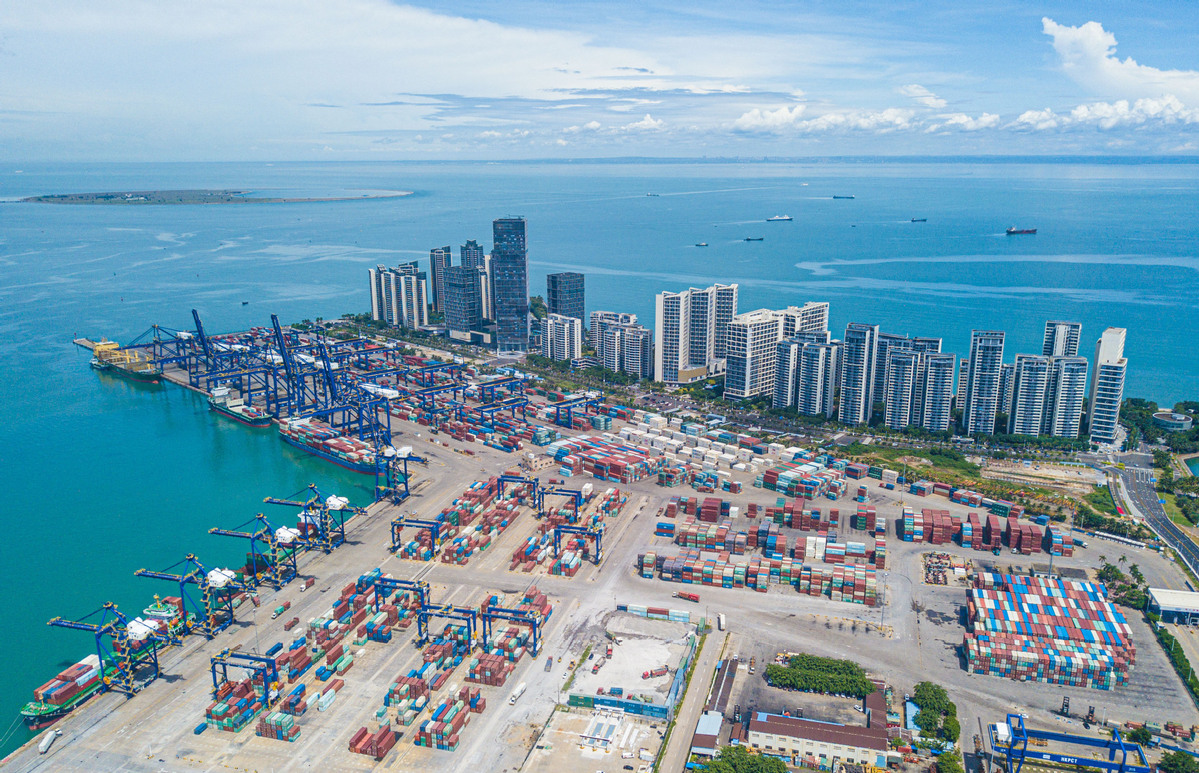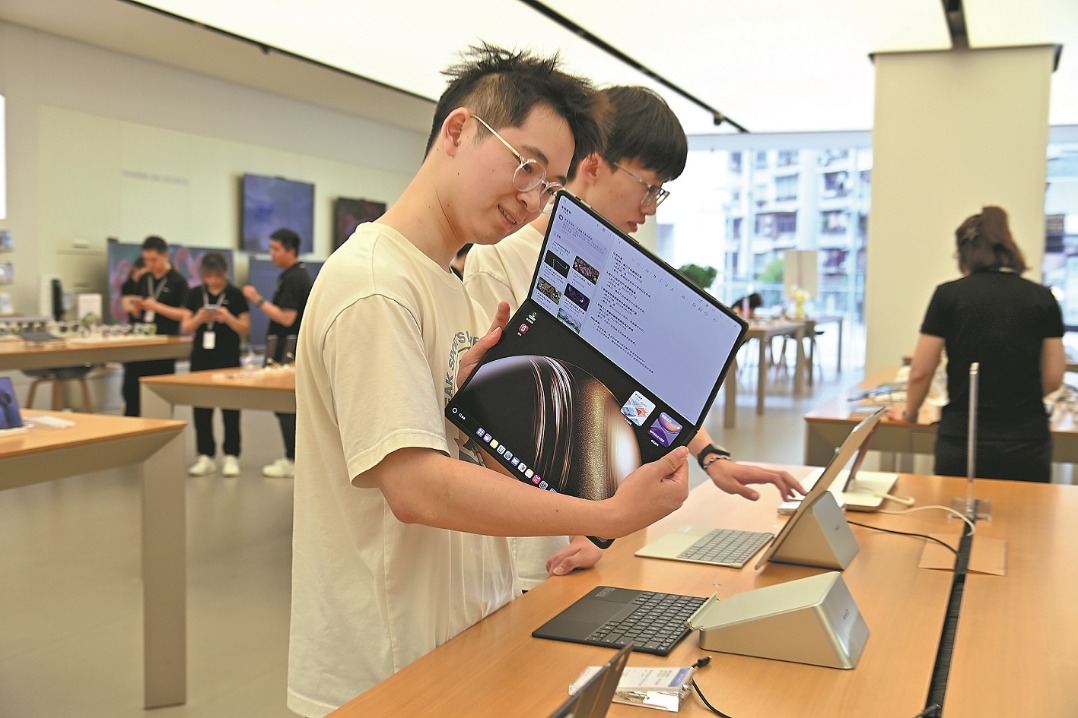Plenum expands new fields, brings more opportunities for businesses


The third plenary session of the 20th Central Committee of the Communist Party of China decided to comprehensively deepen reform in order to further advance Chinese modernization, and proposed goals to be achieved in phases by 2029.
This has created favorable conditions for the long-term, stable and innovative participation of global investors.
As a key guidance for China's economic and social development, related concepts and goals — proposed during the session — will be implemented through more detailed policy measures to support high-quality development of enterprises in China.
Following the plenum, the market space for all types of enterprises will be further expanded.
The focus of State-owned capital will shift to critical industries and key areas related to national security, and they will serve as a guarantee for public services.
Reforms in State-owned enterprises will deepen, with segments like energy, railways, telecommunications, water conservancy, and utilities, which have been monopolies, becoming more market-oriented and independently operated. This will release more market space for non-State-owned enterprises.
Such a development will not only stabilize the market environment and help in the formation of strategic innovation leadership but also drive enthusiasm among market entities to boost economic vitality. This adjustment in business fields, through SOE reforms and equity transactions, will ensure both private and foreign enterprises can participate in a market-oriented manner, which will help enhance their development momentum.
Notably, the nonpublic economy, or private economy, will receive stronger innovation aid. Supporting capable private enterprises in leading major national technological research projects will help ensure stable R&D funding and potentially provide broader application space for related technological achievements.
The further opening-up of major national scientific research infrastructure to private enterprises will help in expanding the commercial application of science and technology, significantly enhancing the foundational R&D capabilities of private enterprises.
In the digital economy era, computing power, represented by supercomputing centers, has become a crucial factor in processing massive amounts of data, exploring business opportunities, accelerating product upgrading, and seeking competitive advantages. With more access to computing power, private enterprises can save on repetitive investments in equipment while significantly improving data processing capabilities.
Similarly, with the support of numerous commercial applications, the utilization rate of major scientific research infrastructure will markedly increase, which will help private companies effectively leverage their R&D strengths and achieve precise guidance in the development of new materials, new processes and processing equipment.
In addition, establishing a unified national market will increase market fairness. In the face of a complex and changing internal and external environment, stable, fair, and advanced market rules will help enterprises of all ownerships.
Unified foundational market system rules, a sound national standard system, and deepened reforms of local standard management systems will provide clearer references for business activities. A fair and unified market supervision will institutionally ensure that enterprises of different ownership structures receive equal treatment, eliminating and abolishing practices that hinder a unified national market.
Local investment laws and regulations will also be further standardized, and illegal preferential policies may be prohibited in the future. High-standard connectivity of market infrastructure and improvement of factor markets will help enterprises utilize domestic and international resources more effectively.
At the same time, new quality productive forces, as the development focus for the foreseeable future, not only need active participation from enterprises but also provide more support to enhance their development momentum.
Comprehensive support for systematic innovation measures will further stimulate innovation dynamics and vitality, reducing the trial-and-error risks for innovators. The emergence of new industries, new models and new momentum will make the Chinese market a global laboratory for innovation and application, creating better conditions for innovators to achieve stable returns.
Historically, multinational companies have numerous examples of leveraging their product and service innovation advantages to gain stable profit sources in China, be it from consumer products, automobiles, financial management software and enterprise resource management systems.
Multinationals with technological advantages have always achieved excess returns in China. With the gradual upgrading of the Chinese market, the technology gap between what multinational companies promote in China and overseas markets is narrowing. For high-tech products, including electronic products, the demand in the Chinese market even leads the global technology and supply frontier.
Strategic industries such as new-generation information technology, artificial intelligence, aerospace, new energy, new materials, high-end equipment, biomedicine and quantum technology will be the development focus in the coming period.
The complete industry chain advantage possessed by China's manufacturing sector will provide strong support for the reasonable advancement of these industries. The integration of the real economy with the digital economy is deepening, digital infrastructure is increasingly improving, and innovation vitality is strengthening significantly. China's super-large market can create a stable and vast space for development of multinationals.
Openness is another distinctive feature of Chinese modernization, and the steady expansion of institutional openness will create a transparent, stable and predictable institutional environment for global investors. Actively aligning with international high-standard economic and trade rules not only provides a more familiar and comfortable development environment for foreign enterprises in China but also offers institutional guidance to further open markets for goods, services, capital and labor.
Foreign investment in China is not only legally protected by law but also assured through the comprehensive removal of restrictions on foreign investment access in the manufacturing sector. Such a move ensures that foreign enterprises can access resources, apply for qualifications and licenses, participate in standard-setting and engage in government procurement.
China's openness spans different industries and regions and fully considers the willingness and capabilities of all parties. While pursuing its own stable development, China focuses on mutual benefits and win-win cooperation with neighboring countries and regions.
The advancement of cooperation under the Belt and Road Initiative significantly increases the points of interconnection between various markets and China, enhancing the resilience of economic and trade links.
Through collaborative efforts, BRI countries and regions not only promote the upgrade and development of traditional industries but also create conditions for cooperation platforms in green development, digital economy, artificial intelligence, energy, taxation, finance and disaster reduction.
The multidimensional connectivity network of the BRI will provide significant support for improving the efficiency of cooperation between Chinese enterprises and local ones in countries and regions participating in the BRI. It may also attract more enterprises globally, thereby increasing the inclusiveness and diversity of international cooperation.
China's opening-up will not close but only open wider. All parties are welcome to hop on to the express train of China's development. Investing in China is investing in the future; investing in China is investing in hope.
The views don't necessarily reflect those of China Daily.
The writer is a senior researcher at the Chinese Academy of International Trade and Economic Cooperation.




































